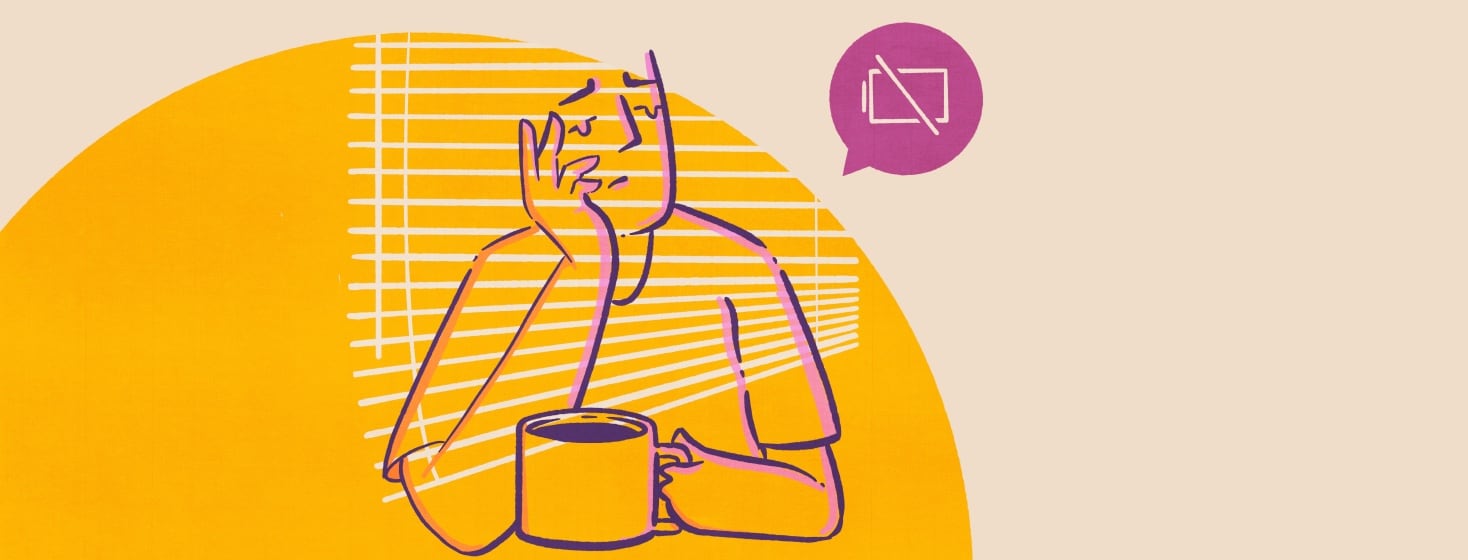Fatigue Stinks. That's It.
Well, I think it’s time, once again, to talk about fatigue. More and more lately, I have seen our community members talking about fatigue and I’ve been sharing my tips on how to overcome it and I always say how successful the routine is for me.
Unfortunately, because Murphy’s law is a real thing, I am now experiencing fatigue myself. Yes, apparently I tempted the gods by posting replies talking about my non-fatigued self and ended up pissing off Fate herself because, for the last month or so, getting out of bed in the morning has been harder than getting your name changed at the DMV. So, take a number, sit on an uncomfortable seat, and wait to be called so we can talk about fatigue.
Fatigue is always lurking
“Now serving C302 at counter 15!” Ok, so here we are, finally, and it’s time to dig in. Fatigue. Ugh, just the word itself is heavy and feels awful in your mouth. It’s as if someone specifically designed every part of that horrible phenomenon to make you feel bad.
I mean, we all know that fatigue is a huge part of chronic illness, and especially rheumatoid arthritis. Like a horror movie, it’s the terror always lurking just beneath the surface, making everything more difficult and putting you on edge all the time.
In addition, it forces you to make ridiculously bad choices - also like a horror movie. (Should we run away? No! Let’s hide inside this coffin...) You can push yourself through it, sure, but when it’s time to pay the piper, it’s going to be as expensive as your firstborn. It’s almost a second and completely separate disease and it rears its ugly head, like RA, when you can least afford it.
Morning fatigue when I wake up
As of now, I’m waking up at my normal 9/9:30 AM and I’m just wiped. Exhausted. So, I hit the snooze for “five more minutes” and when I look up again, it’s almost 11 AM.
UGH! I hate when I fall back asleep and waste two hours of the day! It’s like having a perfectly warmed slice of pie with fresh cold whipped cream on top of it and then waiting until it goes lukewarm and the whipped cream melts before you get to eat it. Also, someone sat on it.
The point is: I’ve been getting fatigued so bad lately that I could sleep all day if I let myself and then I’d have to deprive you, my wonderful readers, of my rapier wit and sparkling prose.
Why is this happening now?
Why is this happening now? Did I do something to precipitate it? Did I NOT do something to precipitate it? Those are the questions that swirl around in your head when fatigue hits.
We try so hard to find the root cause
You immediately search for something you may have done or may have forgotten to do that can be pointed to as the cause. I think we do this because if we can figure out what the root cause is, then it means we can stop it. Or start it. Or half it? You know what I mean – if there’s a way to go back to before the fatigue was exacerbated, we will try anything to get it done.
Unfortunately, it really doesn’t work like that. Even so, I keep trying and I’m running out of ideas. At this point, I’m considering things like, “Did I eat too many mints last week?” Or, “Did I turn up my room heater too hot and now my body wants to sleep more?” Or even, “Was I not thinking enough positive thoughts?? I know I gave several fairies their wings...”
In the end, most of us end up doing the same thing – drinking coffee or using other stimulants to stay awake, limiting our activities during the day, and sleeping more. None of which are a real solution; they are stop-gap at best.
Things get left undone
But that’s the most insidious thing about fatigue – it creeps up slowly and then suddenly crushes you all at once. It’s a slow burn, yes, right up until it isn’t! You hit the wall and have to stop whatever you are doing, right in the middle, and sit down or even take a nap. It doesn’t matter what it is – making pizza from scratch, changing the oil in your car, or lathering up a freshly shorn llama.
When you just can’t do anymore, you just can’t, and that leaves things undone. If you are like me you absolutely hate to leave things undone! You sit there or lay there, waiting for the coffee to kick in, and in the back of your head, the work is laughing at you. “Ha, ha, ha, I’m here, not done. And you’re there, not doing me. Nanny, nanny.” Which, of course, only stresses you out more and makes everything worse, and the cycle continues, unabated.
Fatigue is misunderstood
Fatigue is one of the most misunderstood, most dreaded, and least talked-about parts of chronic illness and rheumatoid arthritis, and that has to change.
Rheumatologists and, yes, even us patients, must make a concerted effort to bring fatigue into the forefront of the conversation and peg it as the symptom it is – just like a swollen knee or a sore shoulder.
Keep the pressure on to solve this problem
Who knows: if we keep the pressure up, maybe someone will even come up with a medication one day to treat fatigue specifically or even just do some research on it! In the meantime, though, as you’ve heard a million times before, try to pace yourself (yeah right) and get a restful sleep as possible (no waking up for 3 AM pie. It’s a real thing.) Talk soon.

Join the conversation